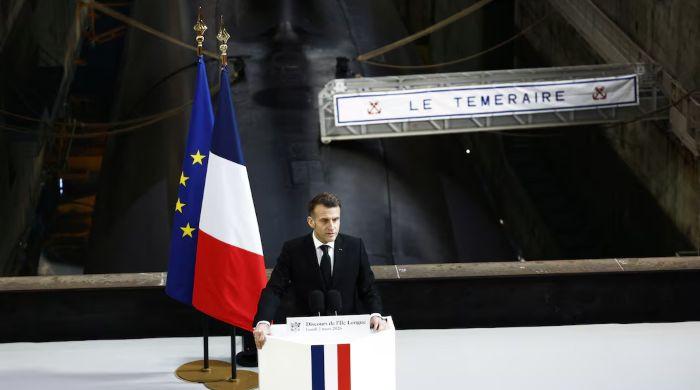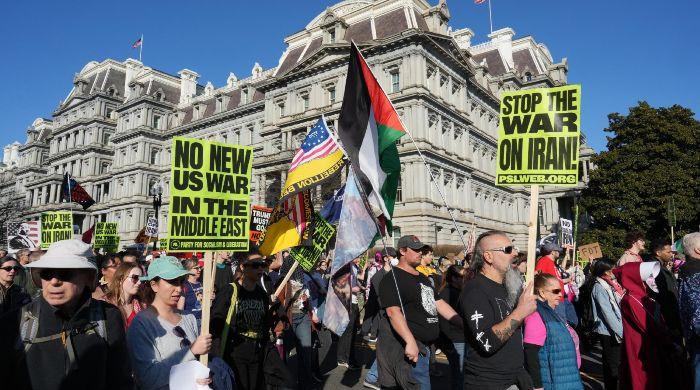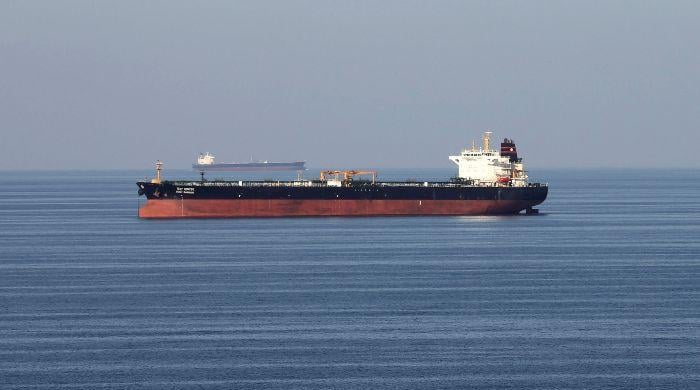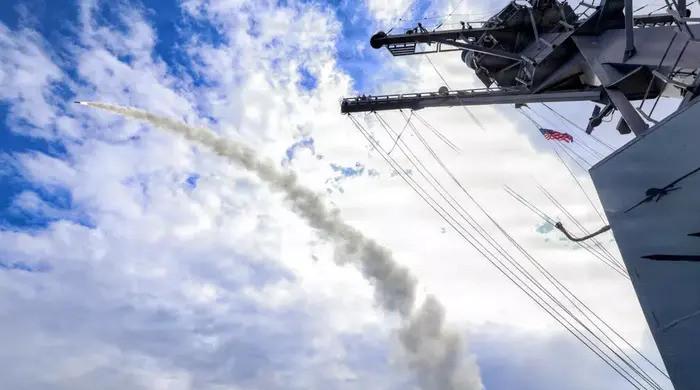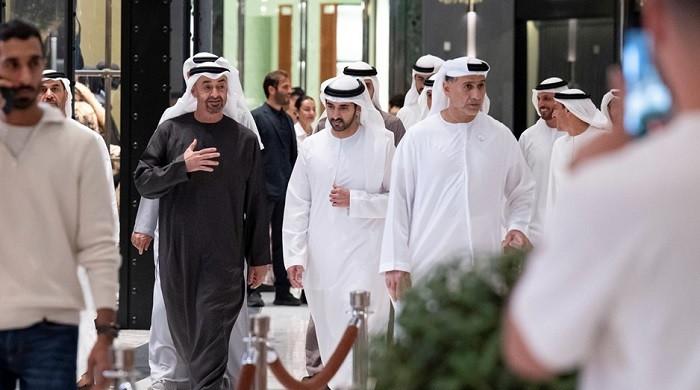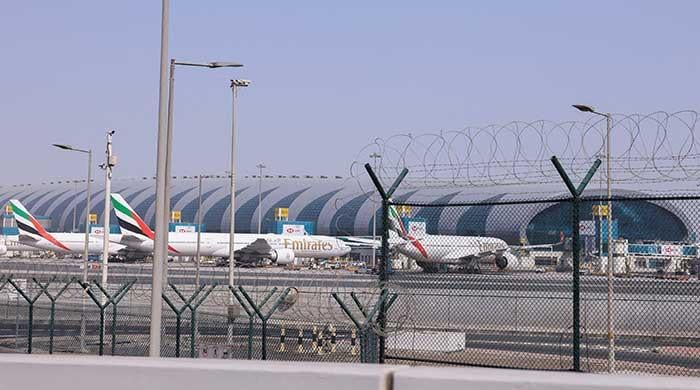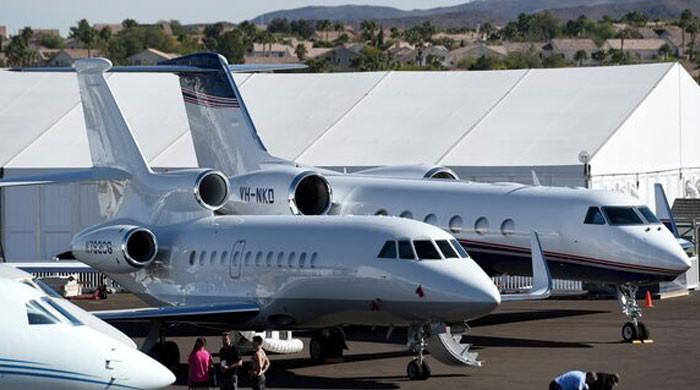Europe faces refugee crisis as millions enter from eastern Ukraine
So far, two million Ukrainians have arrived in Poland among which 90% of these refugees are women and children
March 08, 2022
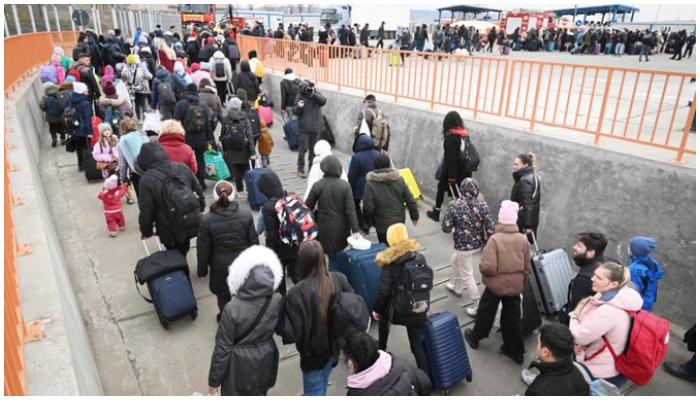
- So far, two million Ukrainians have arrived in Poland among which 90% of these refugees are women and children.
- The Ukraine crisis has threatened Europe's security.
- Journey through the train takes three to four days and sometimes five days to reach Poland.
LVIV: Russian troops are constantly advancing on Ukrainian territory and are now deployed a few kilometres away from the capital Kyiv as 1.2 million people from eastern Ukraine have entered Poland, making it Europe’s biggest refugee crisis since World War II.
Russian troops were surrounding the key capital city from three sides with battles in northern and western outskirts as Russian tanks cut off the east.
The Ukrainian city of Bila Tserkva in the south is the main escape route for the refugees, witnessing rising panic in anticipation of advancing Russian mechanized columns, amidst blaring alarms. There have been bombings and missile attacks on buildings and later people try to remove whatever they can from the rubble and rush back to the nearest bomb shelters.
Russian tanks travelled down the highway leading from the city towards the capital. The refugee evacuation trains are carrying refugees from eastern and central Ukraine displaced by the war.
So far, 1.2 million Ukrainians have arrived in Poland, making it Europe’s biggest refugee crisis since World War II. I travelled by train and bus with refugees from central and eastern Ukraine, 90pc of these refugees were women, children and the elderly. Men between the ages of 18-60 have been banned from leaving the country.
Because of blockades and multiple check-posts, the journey takes three to five days. Since a significant majority of people in eastern Ukraine are ethnic Russians, Russian President Vladimir Putin has asked them to come to western Russia instead of going to western Ukraine to Hungary, Romania, Poland or Moldova. I boarded the train 40 hours ago in the capital, Kyiv. The Polish border is only 64 kilometres from the westernmost Ukrainian city of Lviv. The nearly 8-hour journey took 10 hours to complete.
The fellow passengers narrated how they spent the last week huddled either at their homes or in bunkers, while others fled anticipating an attack. Trains and buses packed with passengers depicted a tragic exodus. Passengers recounted tough and mostly tragic circumstances of having to leave their homes amidst explosions with whatever little possessions they could bring along. Some whimpering, sobbing elders carried their pets, not knowing if they could ever return to their homes and families. Children were unable to fathom the sudden change in their lives. Many had to flee ahead of the Russian army advance that turned the cities and towns into haunted places with sandbags and military check-posts with gun-toting men policing traffic at intersections.
Along the route to the border city of Ukraine, the markets and streets wore a deserted look as most of them were shut with people escaping barely with their lives and exhausting supplies to sustain them. The cafes, restaurants and shops were closed adding another problem into the hardship of people turned overnight into refugees.
Like in all armed conflicts, some ethnic groups turn into pariah, the same is happening to the ethnic Russians who have spent generations in the country.
This correspondent interviewed a reporter of a local newspaper in Kiev who suggested rising right-wing nationalism among Ukrainians. There were reports, he said, of ethnic Russians with permanent residence in Ukraine, facing harassment, intimidation and enormous discrimination. This correspondent witnessed police manhandling Russian citizens, trying to flee with other Ukrainian nationals, which was again repeated at the the Polish-Ukraine border.
Passengers aboard this train did not have to wait in long queues at the Lviv border as the passport control authorities of Ukraine and Poland had completed the procedures aboard the train. Upon crossing the border, Polish officials provided food to refugees inside the train. But many were not so lucky, scores had to queue on the border in the sub freezing conditions for at least two days before they could cross into Poland and the refugee centres there.
AFP adds: Russia's attempts to besiege Kyiv have seen the city of three million cut off from the rest of the country on three sides. Battles are raging on Kyiv's northern and western outskirts. The roads running east are cut off by Russian tanks and minefields after an hour's drive. The south represents Kyiv's main escape route as well as the only way it can be supplied with food and fuel. Russian warplanes routinely buzz overhead. People on the streets share images on their phones of cruise missiles they have filmed flying toward Kyiv a few hundred metres above ground.
Dozens of buses ferry the evacuees to the city of Lokhvytsya, around 150 kilometres to the southwest in Ukrainian-held territory. Kyiv and its Western allies had rejected a previous proposal to evacuate Ukrainians to Russia. Moscow announces a ceasefire in the five cities worst-hit by the fighting: the area around the capital Kyiv, the northern town of Chernihiv, the southern port of Mariupol, Ukraine's second-biggest city Kharkiv and Sumy. The UN says the number of people fleeing the war now tops two million.
Originally published in The News




